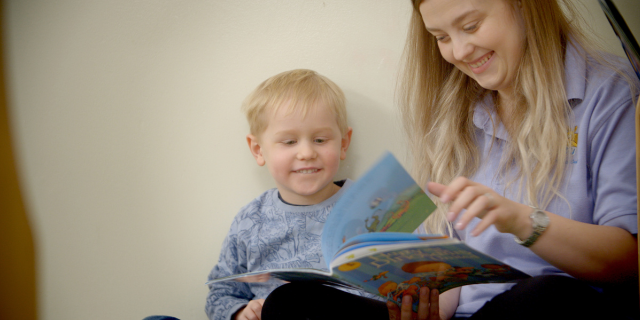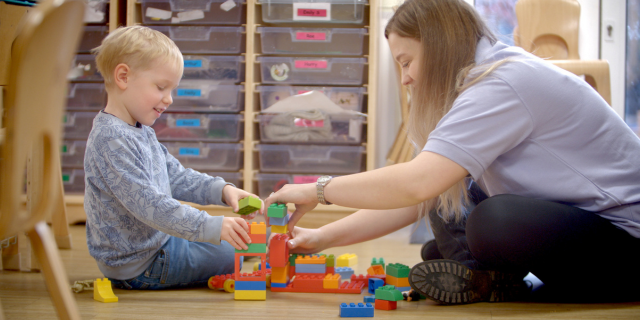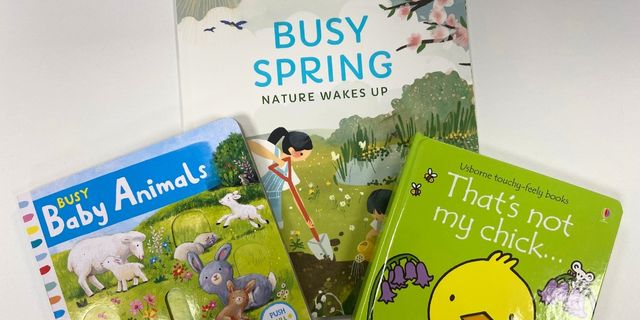Blog
World Book Day 2022 Survey: How important is reading?
Blog
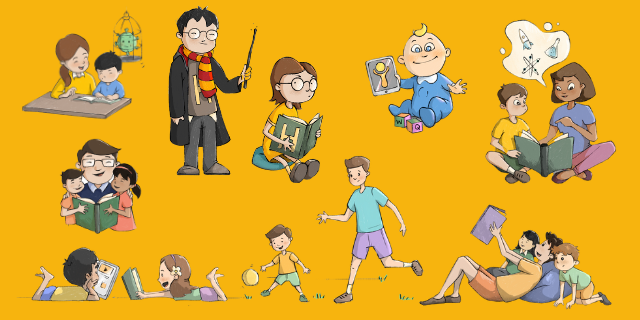
World Book Day has long since been an iconic event, taking place once a year and is widely celebrated by nursery and school children alike. In fact, since the creation of this special day in 1997, over 100 different countries celebrate the day, and share their appreciation for books.
With World Book Day 2022 fast approaching (March 3), we’ve decided to follow on from the success of last year’s costume survey, and ask parents once again for their thoughts around the literary event.
This time around, we’re moving the focus onto the importance of reading – after all, this is what should be at the heart of every World Book Day celebration!
We surveyed over 400 parents of under 11s, and we gained some interesting results. Keep reading to find out more about what they said.
How much do you agree or disagree with the following statement: “World Book Day has lost its focus on reading”?
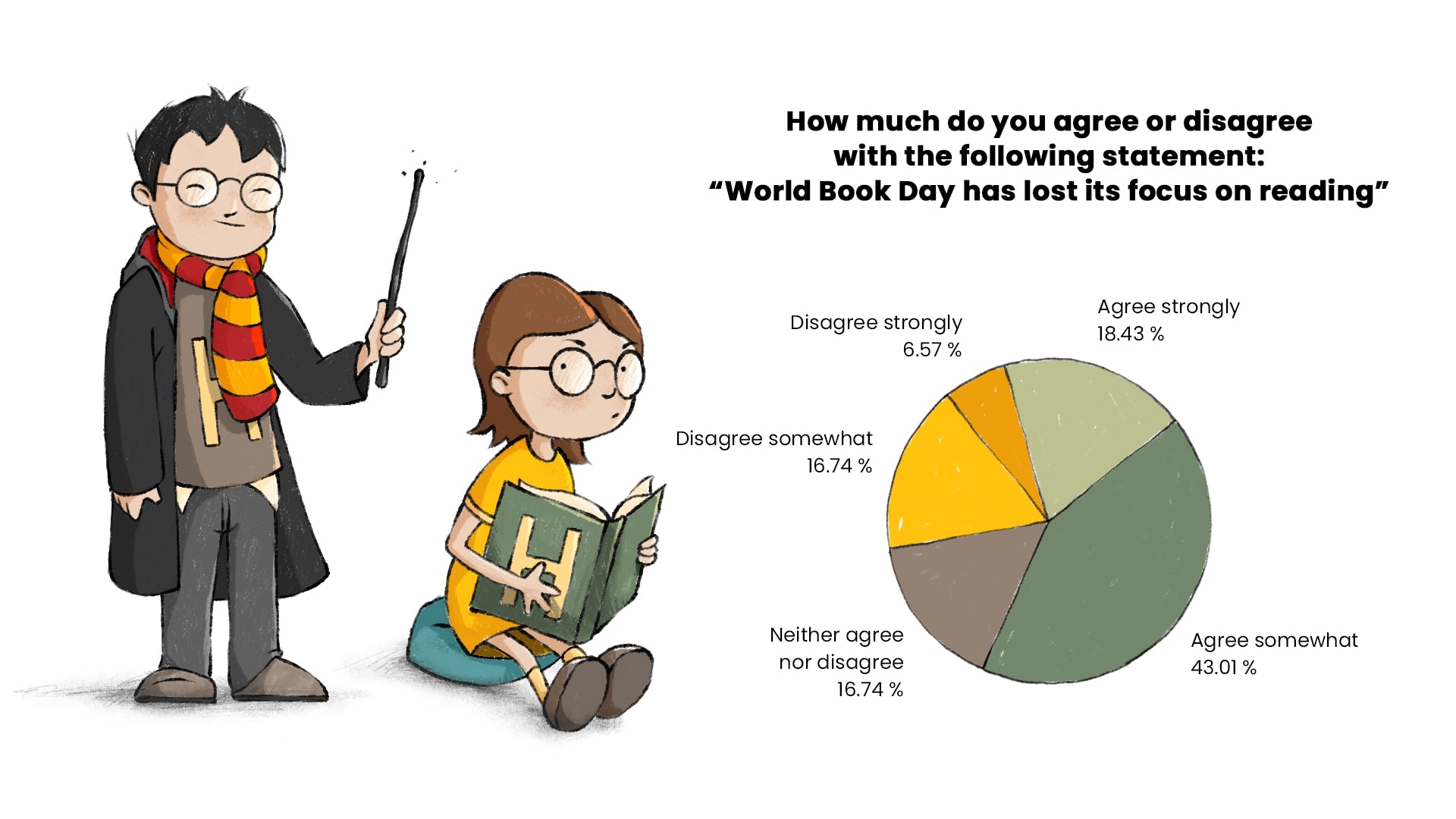
When asked about the focus of Work Book Day, a staggering 62% of parents admitted that they agreed that reading was no longer at the forefront of the day. What’s also interesting is that whilst 24% still believed that reading is the main focus, there was still a remaining 14% who didn’t feel strongly either way. Arguably, that in itself shows that reading really isn’t a priority when it comes to celebrating World Book Day.
However, the reason for this may not be as shocking or concerning as you might think. Our next set of questions moved away from just this one day in particular, and asked for more information surrounding their child’s reading habits in general.
How frequently do you read to your child?
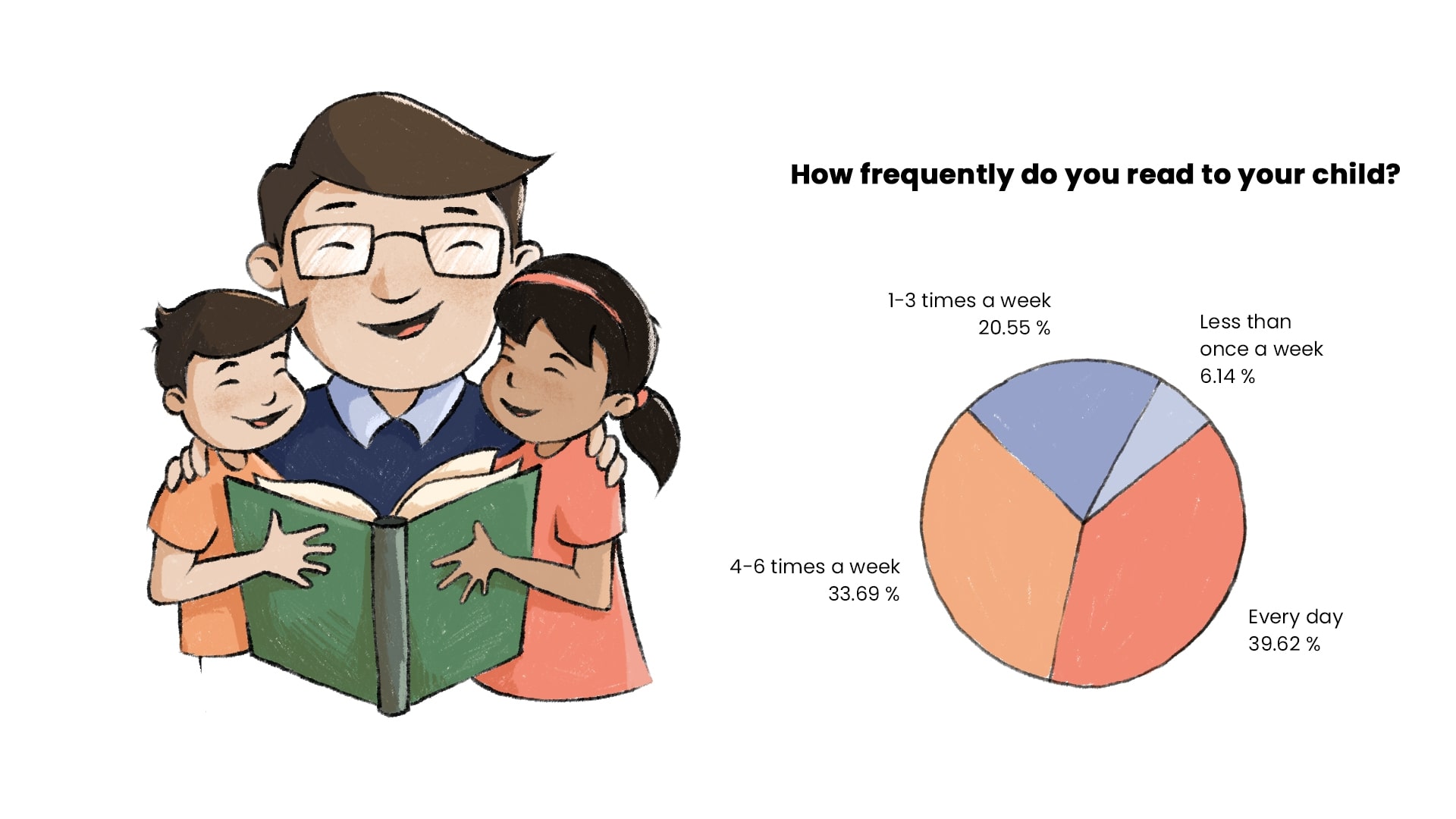
Our next question was focussed around how often parents tend to read to their child – not just for World Book Day, but all year round. Rather positively, the majority of responses (74%) indicated that they read to their child a minimum of four times a week – with over half of those who responded reading to their child every day.
We also asked about the amount of time parents spent reading to their children – 10 minutes a day is the recommendation. Thankfully this is well reflected as the reality – with only 17% of respondents admitting to reading with their child for less than 10 minutes.
So, perhaps the reason that World Book Day has moved into more of an opportunity to dress up than a reading-focussed event, is that parents are consistently reading with their children all year round.
Whilst this is a positive thing, should an increase in reading habits really affect the dedicated day? Or should it instead encourage even more people to celebrate and take part? A whopping 96% of respondents said that their child would be celebrating World Book Day this year.
Growing up did your parents read to you?
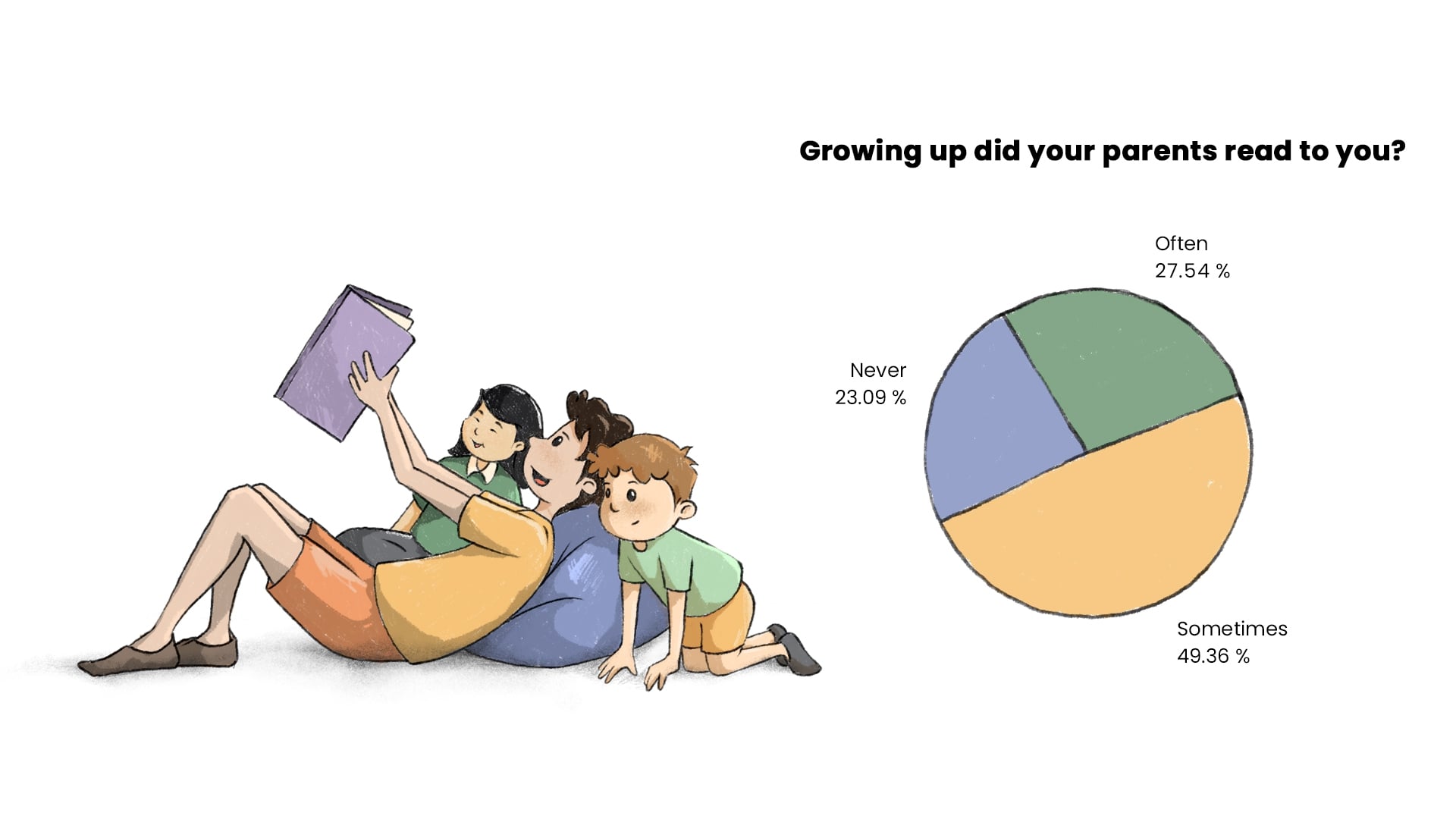
To gain a deeper understanding of our respondent’s attitude towards reading with their child, we also included a question relating back to their own childhood reading habits. When asked if they were read to as a child, almost half (49%) responded with “sometimes”, 28% said “often” – but as many as one-in-four (23%) admitted to “never”.
Interestingly, when we looked at the 6% of parents asked who read to their children less than once a week, it seems that their own parents were more likely to miss out on bedtime reading on a regular basis.
And when we followed this up with the question: Do you feel you read less to your children than your caregiver did to you? The parents seem to agree, with an overwhelming 73% saying no.
Why do you read to your child?
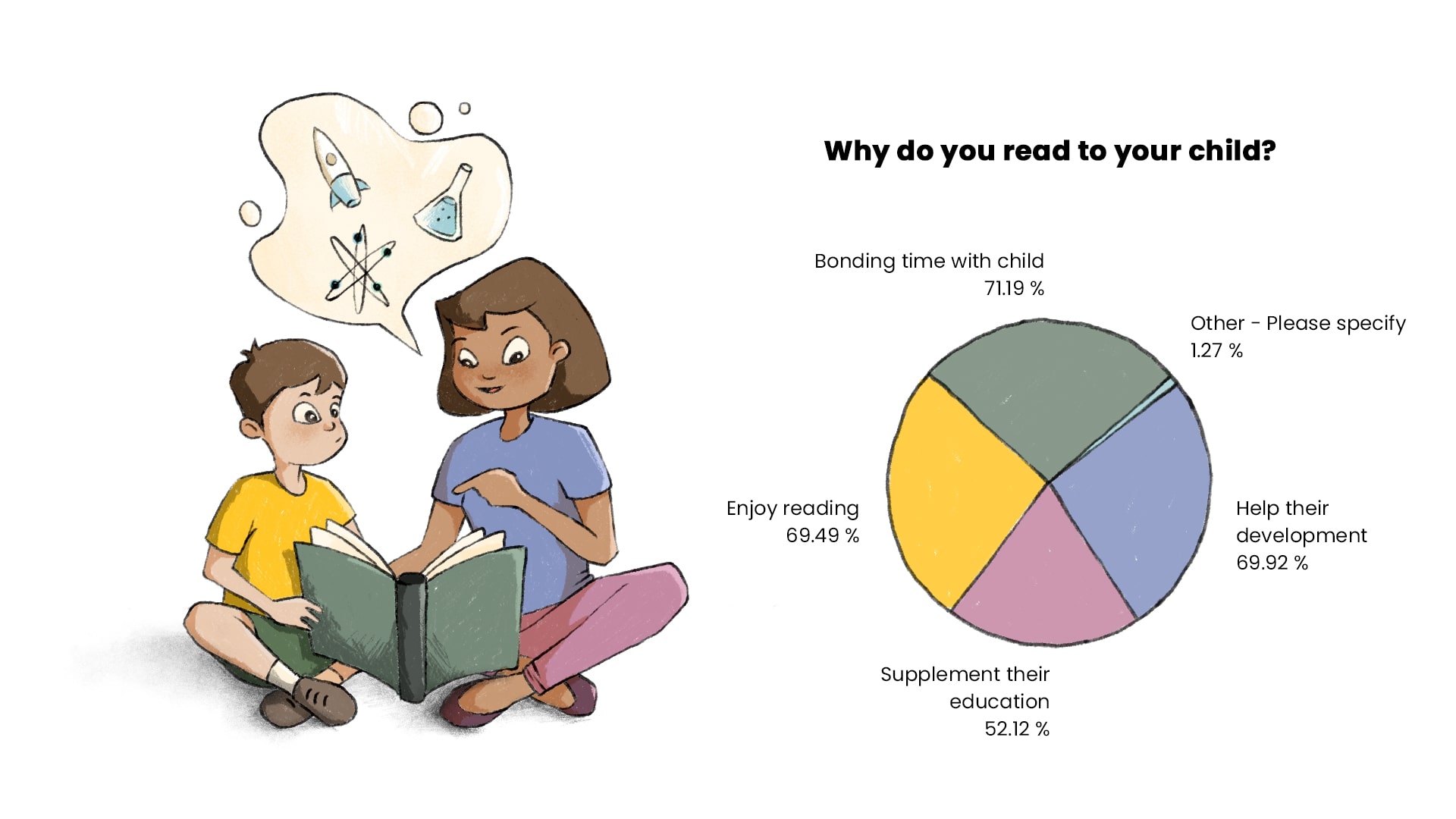
Going back to the reason we celebrate World Book Day each and every year, we then decided to ask our 470 parents why they read to their child. The main reasons that we identified and gave as options were the following:
- Bonding time with your child;
- To help with development;
- For enjoyment; and
- To supplement education.
This question was multiple choice for all respondents, and predictably, each option received a similar number of selections. This indicates that our reasons for reading to our children are well-rounded, and our hearts are in the right place!
Since the pandemic, have you read to your child…?
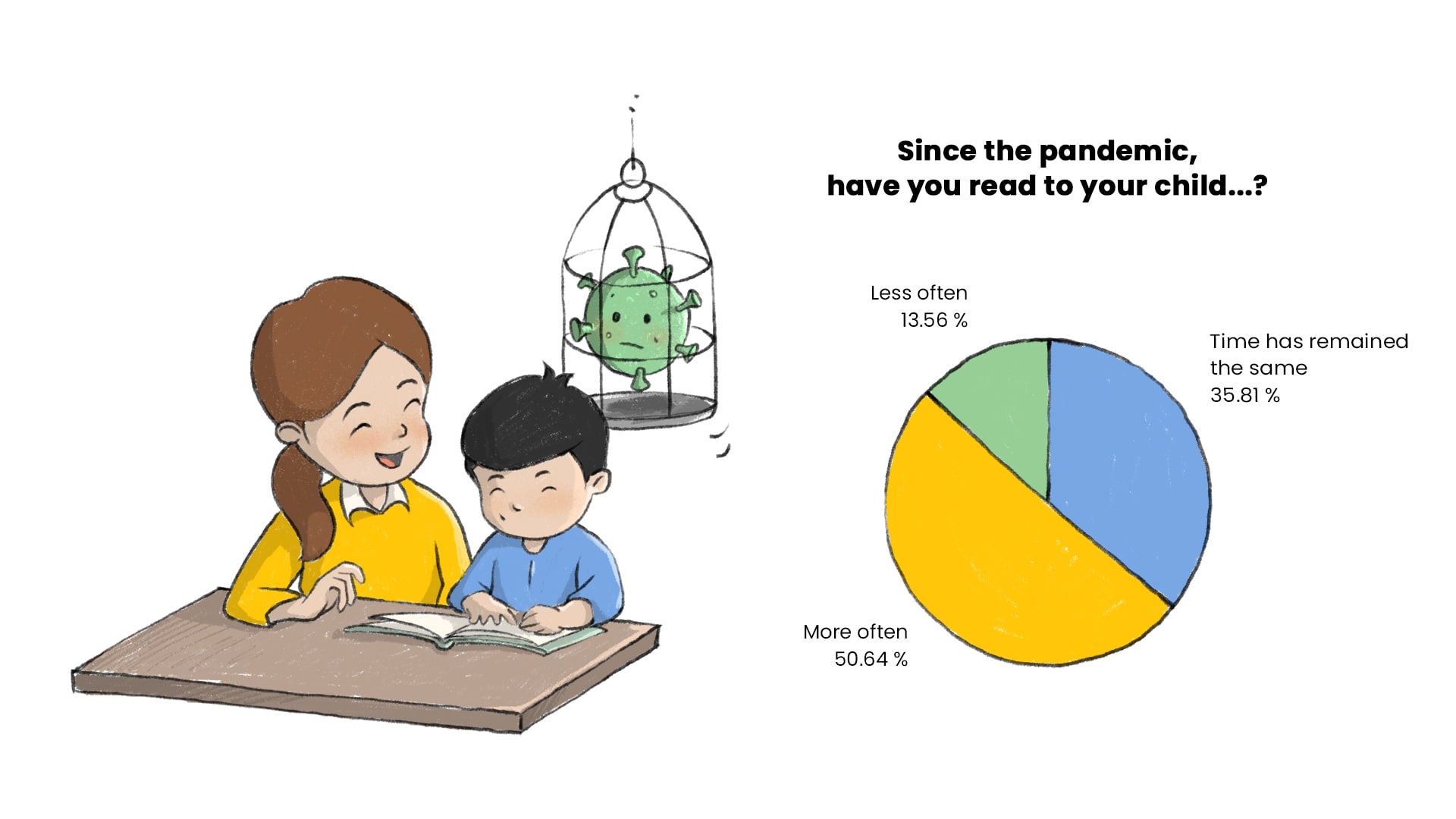
After the last couple of years, almost everyone’s lifestyles and habits have been forced to alter. However, with reading being one of those activities that can be done just about anywhere, can the pandemic really be a contributing factor to how often parents read to their children?
The answer is yes, but only in positive ways. When asked about how COVID has affected reading habits, over 50% of parents admitted that the pandemic had actually increased the amount of time and frequency in which they read to their child, with a further 36% saying that the time spent had remained the same. Perhaps there was something positive about having to spend all that time indoors, after all!
Do you think your child became tech-literate before reading? E.g.: able to use/navigate an iPad or phone better than reading a book?
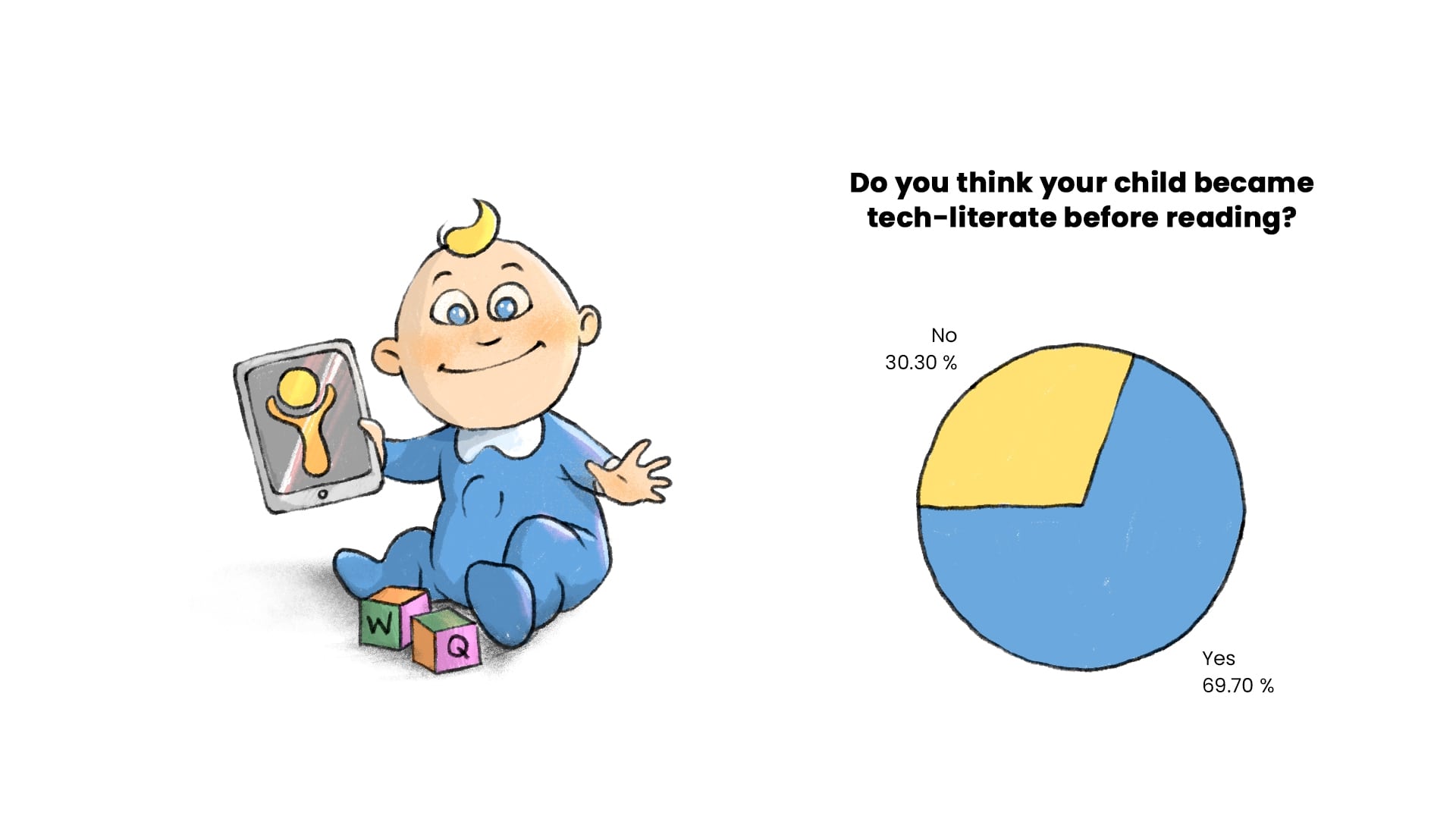
There’s no denying that we live in a technology dominated world. For every problem, there is now a technological solution. And the same goes for reading! Children receive their first tablet device earlier and earlier in their lives, and can find hours and hours of entertainment at a few taps of the screen.
With this in mind, we asked our respondents if their child’s tech-literacy progressed even quicker than their ability to read a physical book, and the result may not surprise you. 70% of parents agree with our statement, citing that their children did in fact grasp the nuances of navigating a tablet or phone a lot easier than learning to read.
This might sound shocking, but taking into account the way we live, and how tech-dominated our lives have become, perhaps being able to use electronic devices will – or has – become an important skill for our children to learn. But can it really be more important than reading?
Do you think being tech-literate is more important, as important, or less important for a child’s development than reading?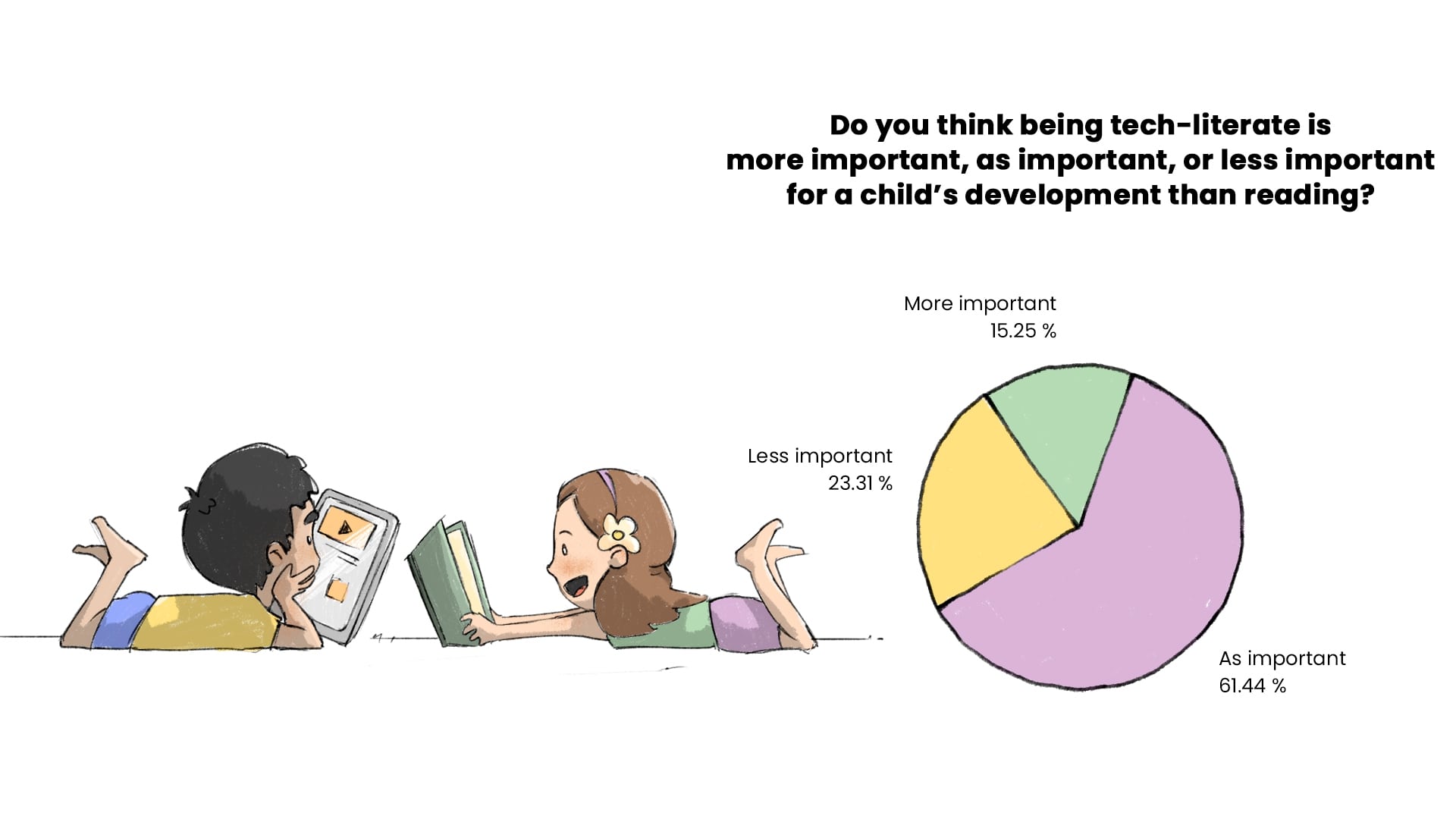
And so, that’s exactly what we asked.
We pin-pointed our query to the subject of a child’s development, questioning the importance of tech-literacy against that of simply reading. 61% of parents agreed that being able to use technology from a relatively young age is as important as learning to read, whilst 15% actually argued that it’s more important. That left just 24% staying true to their own childhood experiences, and insisting that reading was still the most important development tool. Of course, screen time can still be incredibly educational and incorporate a great deal of reading! So, all is certainly not lost.
It’s all about balance, and doing what is best for your child.
Which other activities do you enjoy doing with your child?
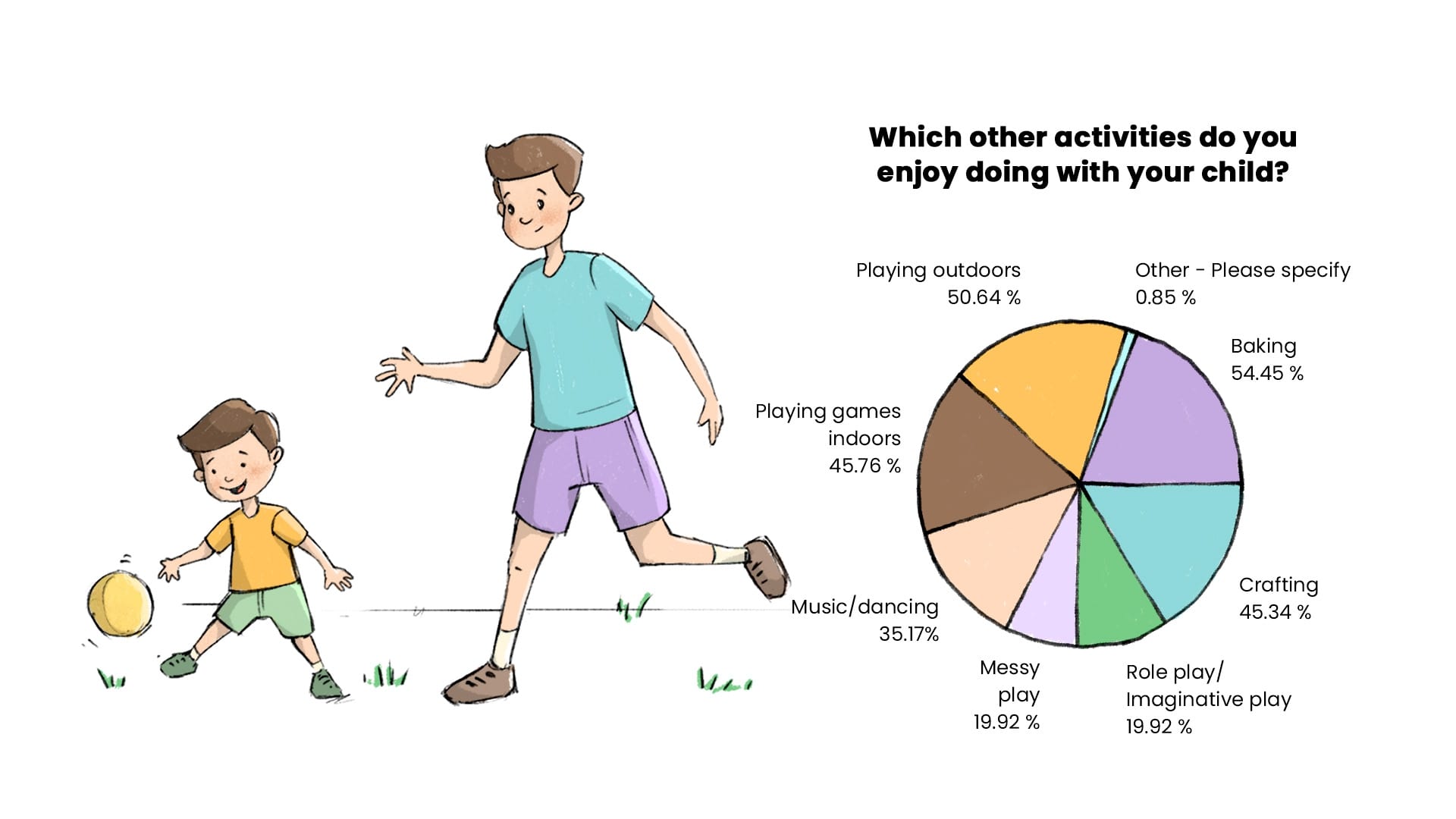
It may seem that gone are the days of wooden toys, arts and crafts or even exploring the great outdoors, right? Well, we were thinking the same thing, and that’s why our final question sought to explore the other activities that keep our children entertained.
With reading being predominantly a bedtime activity, we thought it would be worthwhile asking our respondents what their children liked to do outside of reading and playing on the tablet. Perhaps due to the lockdown craze, baking was the most popular choice, shortly followed by playing outdoors and crafting. This shows that our children are still as eager as ever to get their creative juices flowing, and go on adventures both inside and outside of our homes.
Coming back to what this survey was all about, the top three answers can also act as guide on how to celebrate World Book Day in your own way!
Yes, the focus should be reading, but we certainly won’t argue with some Frozen themed cakes, Harry Potter heavy crafts or even a hunt for The Gruffalo in your back garden.
We hope we’ve helped inspire this year’s celebrations and encourage you to have a wonderful World Book Day your way.
Are you looking for a nursery near you?
Find the perfect nursery or preschool place and Book A Visit at your local day nursery today.
Continue reading and check out our Blog!
Share this article
Related blog/news
Swipe to see our latest articles.
